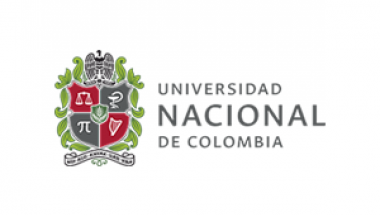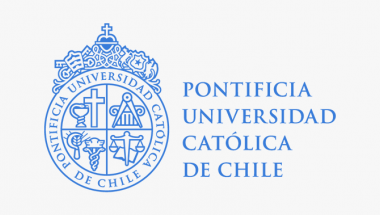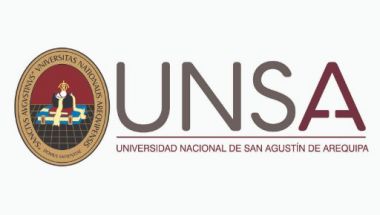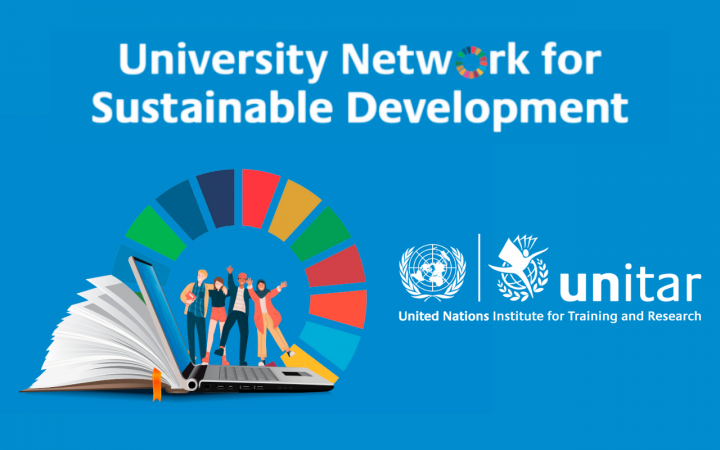Welcome to the University Network for Sustainable Development, a platform about learning, exchanging, and partnering to be SDG learners today and SDG leaders tomorrow!
The Sustainable Development Goals (SDG) are the blueprint to achieve a better and more sustainable future for everyone. Pursuing the quest of SDGs is a common global effort, and universities are unquestionably actors in order for the SDGs to materialize in the future.
The Network allows universities joining to be informed about other universities’ achievements on SDGs learning activities, to create partnerships among one another, as well as with UNITAR, while improving their educational system with exclusive access to official UN learning material, documentation and resources around SDGs and Sustainable Development.
Secure your place and join the University Network for Sustainable Development by sending an email to nyo@unitar.org.

The Universidad Nacional de Colombia is committed to the fulfillment of the Sustainable Development Goals within the framework of the fulfillment of its mission functions and management processes.
In the field of research, the University has more than 600 projects initiated in 2020 related to the SDGs. The University develops research projects related to the fulfillment of all the SDGs, highlighting the SDG 3 projects with 133 projects and quality education with 85. Other participations and academic activities to highlight, cover the Special Program for Admission and Academic Mobility PEAMA in the town of Sumapaz, in the city of Bogota, which performs all the training of its students in the framework of the SDGs, as well as the participation of the University in the Coordination and development of the ASIBEI Innovation Bootcamp, which revolved around the fulfillment of 3 SDGs. In this way, it can be evidenced that the work of the National University of Colombia bets on the fulfillment of the SDGs, and therefore, all funding opportunities available institutionally, covers the implementation of activities focused on the SDGs.

In addition, UC has developed several initiatives aimed at incorporating sustainability in the identity of its members. Such was the modification of the graduation profile of students, along with the inclusion of Sustainability and Integral Ecology as a minimum line within the General Formation of students of all careers and disciplines.
Along with this, at a cultural level, the existence of the Green Office Program stands out, which aims to create a sustainable culture in the UC community, through the promotion of the acquisition of new habits in the work spaces of professionals, administrative and academic staff.

∙ Policies conform it "Zero Plastic" which banned the use of non-recyclable plastic, seeks to create awareness among its students, faculty, and administrative staff to forge them as agents of change for sustainable development and environmental protection.
∙ Another is "Zero Academic Paper", whose strategy includes the implementation of virtual classrooms and the prohibition for teachers to use paper in the development of their activities. ∙ "Arborization at UNSA". The objective is to have a forest with 5 thousand trees by 2028. The commitment is to create "Living Fences" in the three areas of the University. ∙ "Un Día sin motor en UNSA" which seeks to restrict the entry of motorized vehicles to the different academic areas, promoting transportation alternatives such as bicycles. ∙ Use of clean energy by installing solar panels at different points of the University. ∙ Likewise, the Institute of Science and Environmental Management (ICIGA) has formed Environmental Brigades that develop awareness days to have sustainable environments. ∙ Health promotion: since 2017, a comprehensive health checkup was developed for 18 thousand students of which 54% presented visual problems, for 2018 corrective eyeglasses were delivered.
∙ Employability program for vulnerable groups, aimed at Young people with limited economic resources, a short training service is provided to young people from vulnerable areas of the province of Arequipa who have not been able to access university studies,
∙ Program for the prevention of violence in all its manifestations aims to preventively develop six types of violence: domestic, technological, cultural, sexual, animal, and media violence.




